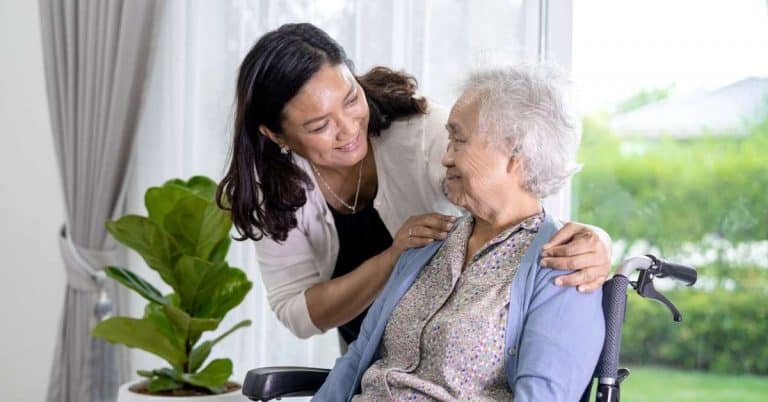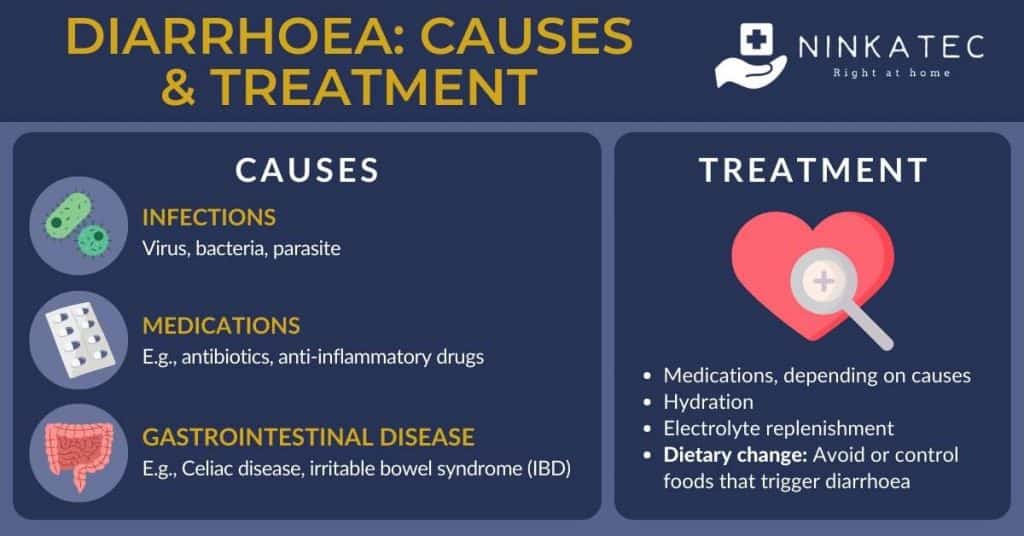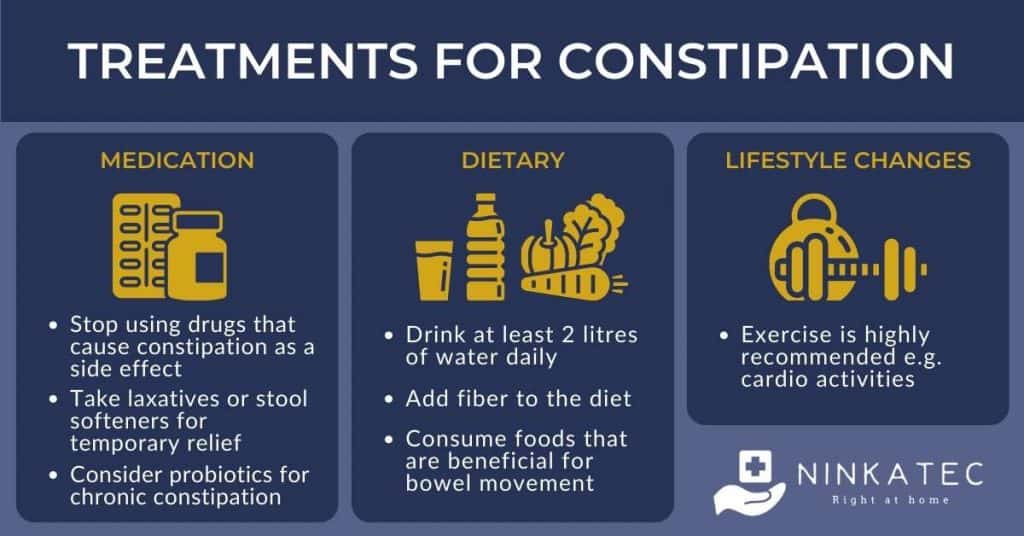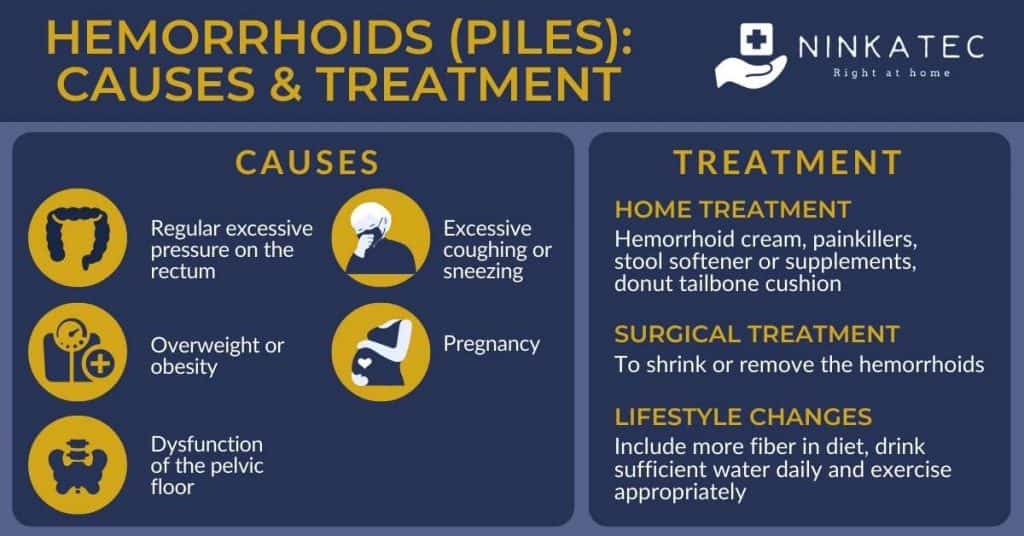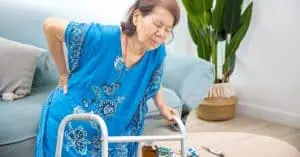Table of Contents
Introduction
Stomach and digestive complaints are one of the most common conditions found in family clinics in Singapore, ranging from daily problems such as diarrhoea and constipation, to more serious issues such as Gastroesophageal reflux disease (GERD) or piles. The severity of these conditions varies from one individual to another. Some people experience mild stomach pain with bowel irregularities, while others suffer every day from debilitating symptoms.
You may hear doctors call these gastrointestinal diseases. The term ‘gastrointestinal’ refers to the stomach and the intestines in the body. Gastrointestinal conditions can be chronic or acute and can happen to people of all ages. However, they tend to worsen with age due to less active lifestyles among elderlies, and sometimes due to co-existing conditions and the usage of medication. Coupled with the reduced appetite among elderlies, this can result in insufficient nutrition supply for senior adults.
In this comprehensive guide, we will cover the most common stomach and digestive issues among elderlies in Singapore, including causes, symptoms and treatments for irritable bowel syndrome, constipation, diarrhoea, piles, GERD, dyspepsia, diverticular disease and inflammatory bowel syndrome.
1. Diarrhoea: Causes, Diagnosis, Treatment
Overview
Diarrhoea is a common symptom that has a wide variety of causes. In general, experts classify diarrhoea into two categories – acute or chronic diarrhoea.
Acute diarrhoea is usually a benign condition caused by a viral infection or some other digestive abnormalities. Conversely, chronic diarrhoea can lead to serious complications if left untreated. It is defined in the medical literature as loose stools that last for at least four weeks.
Causes of diarrhoea
There are several causes of diarrhoea, which significantly vary in severity. Here are the most common causes:
Infections
Usually, viral and bacterial infections do not cause chronic diarrhoea. In most cases, diarrhoea will last for a few days. However, in the case of some parasitic infections (e.g., amebiasis), the infection may last for months and cause diarrhoea.
Medications
Non-Steroidal Anti-Inflammatory Drugs (NSAIDs), such as aspirin and ibuprofen, can damage the stomach and intestinal walls. Over time, this could lead to gastric ulcers and diarrhoea. Typically, NSAIDs are not recommended for prolonged use; however, in the case of chronic pain (e.g., chronic back pain), patients might take these medications for months or even years.
Antibiotics
Self-medication with antibiotics might disrupt the normal bacterial flora found in the intestine, which leads to bacterial overgrowth, and eventually, diarrhoea.
Celiac disease
Celiac disease (CD) is a chronic autoimmune ailment characterized by an intense immune reaction after consuming foods that contain gluten. CD causes diarrhoea known as steatorrhea, which means fat-containing stools. The only treatment option for this disease consists of adopting a gluten-free diet.
Inflammatory bowel disease (IBD)
The two major IBDs are Crohn’s disease and ulcerative colitis. These conditions manifest by the chronic inflammation of the intestines that translates clinically to:
- Bloody stool
- Diarrhoea
- Severe abdominal pain
The treatment options for these conditions include anti-inflammatory medication and surgical resection of the bowel.
Diagnosis of diarrhoea
The diagnosis of diarrhoea is usually straightforward. Your physician will ask you a few questions to establish a timeline for your symptoms. He/she will then conduct a thorough physical examination to look for any signs that align with the suspected diagnosis. Finally, your doctor may order a few blood and imaging tests to confirm or exclude the diagnosis.
Treatment of diarrhoea
Depending on the cause of your diarrhoea, treatment will vary. For instance, patients who have amebiasis will need to take antibiotics to treat their infection. Fiber supplements can also be helpful since they relieve diarrhoea due to their water-holding effect.
Hydration
Losing a lot of fluids for an extended period of time could be very damaging to your body. One of the most important therapeutic options for diarrhoea is sufficient hydration. Additionally, diarrhoea may also cause electrolyte loss in the faeces, which need to be replenished by taking electrolyte drinks. If severe enough, dehydration can be devastating for you and may lead to serious complications (e.g., irreversible brain damage, death).
Making dietary changes
If a specific dietary item is the cause of diarrhoea, a person can try removing this food or beverage from their diet to see whether or not symptoms improve.
Once the diarrhoea symptoms clear up, it may be possible to gradually start eating these foods again on an infrequent basis or in moderate amounts.
2. Constipation: Causes & Treatment
Overview
According to the World Gastroenterology Organization, constipation is defined as having fewer than 3 stools per week. It could be caused by factors such as poor hydration and dietary choices. However, medications are the most common cause of this unpleasant symptom. In fact, constipation is one of the most common side effects of drugs.
Constipation is also a common complaint among elderlies. As we age, bowel movement tends to slow down while activity level also decreases. Additionally, elderlies tend to suffer more from medical conditions that require regular usage of medications with constipation as a side effect such as hypertension drugs or painkillers. All of these factors contribute to more incidents of constipation.
Other symptoms of constipation include:
- Stools that are dry, hard, or lumpy
- A feeling of pain and that you have to strain hard to pass motion
- A feeling that not all stool has passed
Some drugs that cause constipation
Antihistamines
This class of drugs is commonly used to treat symptoms of allergy. Drugs such as Benadryl, Zyrtec, Allegra, and Claritin can all cause constipation. The reason behind this is the pharmacological action of these drugs. Antihistamines do not only block histamine receptors, they can also block cholinergic receptors. These receptors belong to the parasympathetic nervous system, which is usually referred to as the “rest and digest” system.
The parasympathetic system is responsible for the “chill” activities of the body; it regulates digestion, urination, and reproduction. It also decreases your heart rate, breathing rhythm, and pupil size (myosis). By blocking the cholinergic receptors in the smooth muscles of the intestines, the body will no longer be able to move food throughout the digestive tract. As a result, food will stagnate and causes constipation.
Non-Steroidal Anti-Inflammatory Drugs (NSAIDs)
NSAIDs are drugs used to treat a variety of medical conditions, including osteoarthritis, rheumatic arthritis, headache, low back pain, Crohn’s disease, and many more.
The mechanism of action of NSAIDs involves the blocking of prostaglandin production, which is a pro-inflammatory compound that causes pain, swelling, and redness of the affected area. NSAIDs are notoriously known for causing constipation since prostaglandin is also crucial for bowel movement. Here are some examples of NSAIDs:
- Ibuprofen
- Aspirin
- Naproxen
- Diclofenac
Tricyclic antidepressants
Tricyclic antidepressants were previously used for the treatment of depression
They are not specific to one receptor, thus producing several physiological responses and side effects. Because of their anticholinergic activity, tricyclic antidepressants can also cause constipation.
Painkillers
This is particularly true for potent analgesics, such as opioids (e.g., Vicodin, Norco, Tylenol with codeine, Dilaudid). These medications are prescribed for patients experiencing severe pain resistant to the usual over-the-counter painkillers (e.g., acetaminophen). Indications may include:
- Severe pain
- Post-surgery
- Malignant pain
If you’ve undergone a major surgical procedure, and you’ve been prescribed opioids, you can almost be sure that constipation is coming!
Iron supplements
Many people choose to supplement their bodies with different vitamins and minerals in fear of pathological deficiencies.
Iron is the most common mineral that’s artificially supplied; it is used to treat iron deficiency anaemia, fatigue, and sleep disorders; it can also be part of multivitamins. Because of its chemical interaction with the gastrointestinal tract, iron causes several digestive symptoms, including nausea, vomiting, bloating, gas, epigastric pain, and constipation.
Treatments for constipation
If constipation happens as a side effect of taking some drugs, it usually goes away when you stop using the medication. If constipation happens due to other causes, or you expect usage of drugs and therefore constipation to prolong, you may need treatments. Let your doctor know of the constipation side effect from the drugs you are taking for further advice.
Treatments for constipation involves 2 types: medication to help soften the stools and dietary/lifestyle changes to support regular bowel movement.
Medication
- Laxatives are commonly prescribed for constipation. It exists in many types including stool softeners, some of which you can easily get over the counter. Regardless of active ingredients, the main purpose of laxative is to soften the stool, making it easier to be passed. However, laxative is not recommended to be used for a long period of time. And contrary to popular belief, research has shown that it should not be used for weight loss, as there is no evidence supporting such usage.
- Probiotics sometimes are recommended for chronic constipation. Although probiotics are generally useful in promoting gut health and safe for general use, patients with constipation should check with their family physician for the particular type of probiotics containing the bacteria strains which helps with constipation and is suitable for their condition.
Dietary and lifestyle changes
- Drinking at least 2 litres of water daily and adding fiber to your diet are the 2 most important dietary changes that patients with constipation will need to make to regularise bowel movement in the long term.
- Consuming foods that are beneficial for bowel movement and reducing or avoiding food that are harmful for bowel movement is highly recommended for long term management of constipation. Foods that support constipation relief include fruits such as prunes, apricots, apples, legumes such as beans, peas, lentils, chickpeas, and prebiotic foods such as yogurt, kefir, kimchi. Good news for coffee lovers, coffee is also known to support motion passing. Low FODMAP diet can also provide some help (see above for benefits of a low FODMAP diet). On the other hand, avoid foods that are low in fiber such as fried food, chips, dairy products and red meat.
- Exercise is also highly recommended. In addition to general health benefits, cardio activities help to boost bowel movement and therefore helps to relieve constipation.
3. Hemorrhoids (Piles): Symptoms, Causes, Treatment
Overview
Hemorrhoids, often known as piles, happen when the veins and tissues at the lower part of the rectum (i.e., the bottom) become inflamed and swollen. The inflammation can be inside the rectum - known as internal hemorrhoids, or outside the rectum around the anus - known as external hemorrhoids. Internal piles often present itself with discharge from the anus while external piles often cause pain and itchiness. Piles or hemorrhoids can happen at any age. However, elderly are at higher risk of suffering from piles than younger individuals.
In Singapore, a common myth exists that spicy food can cause piles. Good news for those who love spicy food and happen to suffer from piles! Studies have debunked this myth. Patients participating in various studies did not show worsening symptoms after eating red pepper. However, doctors advise to consume spicy food in moderation and according to your tolerance, as it can irritate the stomach and cause other digestion problems such as diarrhoea.
Symptoms of hemorrhoids (piles)
Patients often think of piles or hemorrhoids when they notice blood during or after passing motion. However, this is not the only symptom. Nor is rectal bleeding always an indication of piles. Consultation with a GP or specialist is recommended when you experience the below signs and symptoms:
- Bleeding during passing motion: Traces of bright red color blood or dark red blood on toilet paper or in the stool are indications of bleeding inside the rectum.
- Discomfort or pain or itchiness around the anus
- Discomfort of pain after passing motion
- Lumps in the anus area
- Leaking or abnormal discharge from the anus
- Feeling like you still need to pass motion though you have just gone to the toilet
To diagnose piles, a physician or specialist usually needs to perform proctoscopy - a procedure to examine the inside of the rectum to find out if lumps are present and what are their conditions. For adults above 50, a colonoscopy might be ordered to rule out other conditions such as colorectal polyp or colorectal cancer before a diagnosis of piles can be confirmed.
Causes of hemorrhoids (piles)
The most common cause of piles is regular excessive pressure on the rectum. This can happen due to straining during passing motion as a result of chronic constipation or chronic diarrhoea. Other situations leading to piles include being overweight or obesity, frequent heavy lifting, or frequent extended periods of sitting or standing, or even excessive coughing or sneezing. For women, pregnancy can result in unwanted piles, due to the pressure from the womb and hormonal changes that cause veins including veins in the rectum to relax.
Some studies have found that hemorrhoids can be attributed to genetic causes, similar to varicose veins - which is a condition where the veins are enlarged and swollen. Other less common causes may include dysfunction of the pelvic floor.
Treatment of hemorrhoids (piles)
It is a myth that surgery was the only treatment option for piles. In fact, multiple treatments are available including over the counter medication and non-surgical treatments. If piles or hemorrhoids are caused by constipation, it can even go away by itself when you make healthy dietary choices and exercise regularly to treat constipation.
In light cases, treatment of piles aims to relieve symptoms and eliminate discomfort, sometimes in the matter of a few days. For chronic hemorrhoids that do not improve with symptom management treatment, doctors may recommend procedures to eliminate the source of pain, with patients making lifestyle changes to prevent piles from coming back. Below is an overview of treatments you may expect depending on the severity of piles.
Home treatment:
- Piles cream to apply at and around the anus area relieve pain and itchiness. Hemorrhoid creams often contain witch hazel, lidocaine, or hydrocortisone.
- Painkillers such as ibuprofen or acetaminophen taken orally to reduce pain.
- Stool softener or fiber supplements, to reduce pressure and pain when passing stool.
- Sitz bath to sooth discomfort in the anal area, which is a warm water bath in sitting position, with or without salt. Sitz bath is best taken after passing motion for 15 or 20 minutes until symptoms are managed.
- Donut tailbone cushion to reduce pressure on the rectum if you experience pain and have to sit for long periods.
Surgical treatment:
- The first group of treatment methods aim to shrink and/or cut off blood supply to the piles or hemorrhoids. Doctors traditionally achieve this by using a special rubber band to tie up the base of the hemorrhoids. Nowadays, other methods are available to shrink the problematic piles such as using electric current (electrocoagulation) or infrared light (infrared photocoagulation) or by injecting a medicine into the piles (sclerotherapy).
- The second group of treatment methods involve a surgical procedure to remove the hemorrhoids or put it back into the anus. Common procedures include hemorrhoid stapling and hemorrhoidectomy.
Lifestyle changes:
To prevent piles from coming back, future flare-ups, or in the case hemorrhoids caused by chronic constipation, doctors often recommend dietary and lifestyle changes such as:
- Include more fiber in your diet: As mentioned above, the benefits of fiber to digestions are many. For the case of piles, it acts as a stool softener, therefore reducing pressure during bowel movement.
- Drink sufficient water daily: Supplying the body with sufficient water also helps to make it easier to pass motion, among many other benefits. Most sources advise drinking 2 liters of water a day.
- Exercise: It is another myth that exercise exacerbates piles. In fact, exercise helps to strengthen muscle, stimulate bowel movement, therefore contributing to preventing piles prolapses. However, strenuous forms of exercise that could put pressure on the rectum such as heavy weight lifting should be avoided. It is also important to make sure you do not hold your breath while exercising, as this is believed to add pressure to the bottom area.
[Continue to Part 2: Abdominal Pain, Dyspepsia, GERD, Diverticular Disease, IBS]

